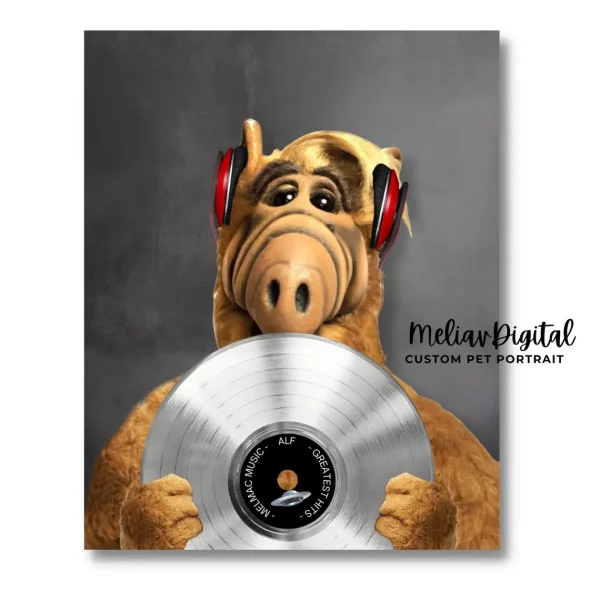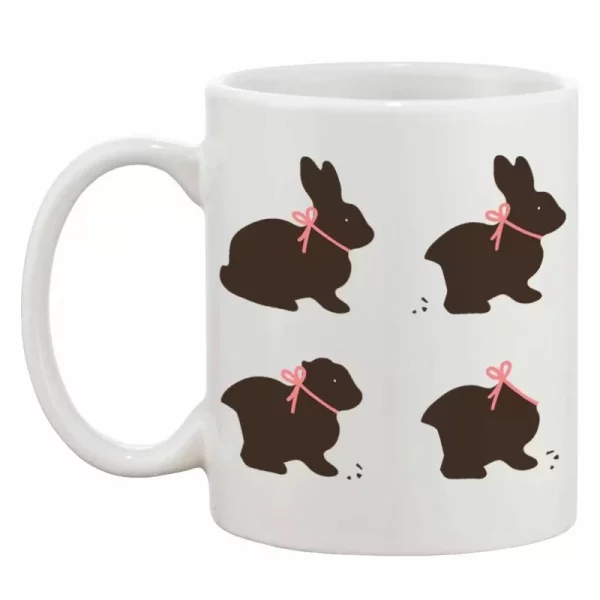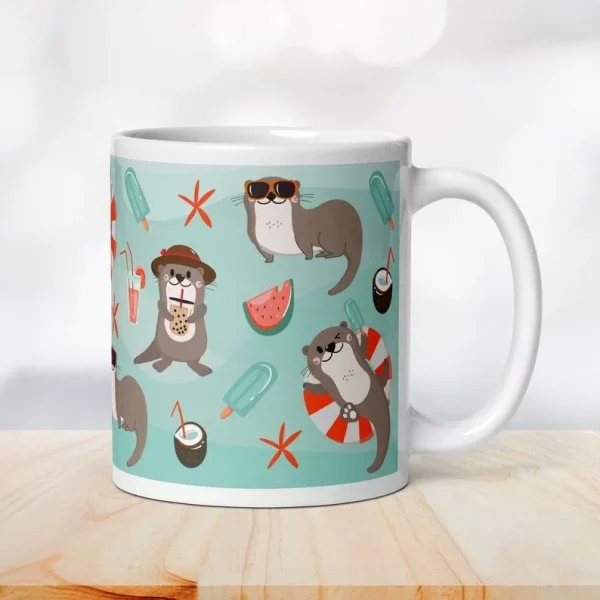
Pets Experience Breakups and How to Help Them
How Pets Experience Breakups and How to Help Them Cope: A Guide for Dogs and Cats 🐾💔
Breaking up is never easy, and it’s not just humans who suffer during a separation. Our beloved pets, who thrive on routine and stability, can also feel the emotional and environmental impacts of a breakup. This comprehensive guide will provide practical advice and scientific insights to help your furry friends navigate these challenging times. Don’t forget to check out Meliav’s personalized pet portraits to bring some joy and beauty into your home during this transition. 🌟
Understanding the Impact of Breakups on Pets 🐶🐱
Dogs
Dogs are social animals that form strong bonds with their human families. A breakup can disrupt their sense of security, leading to anxiety and behavioral changes. 🐕💔
Signs of Stress in Dogs:
- Separation Anxiety: Increased clinginess or destructive behavior when left alone.
- Changes in Appetite: Either overeating or loss of interest in food.
- Altered Sleeping Patterns: Restlessness or excessive sleeping.
- Behavioral Changes: Increased aggression or depression.
Cats
Cats, though often perceived as independent, are also deeply affected by changes in their environment. A breakup can lead to stress and anxiety in cats, manifesting in various ways. 🐈⬛💔
Signs of Stress in Cats:
- Hiding: Spending more time in secluded spots.
- Changes in Grooming: Over-grooming or neglecting self-care.
- Litter Box Issues: Changes in litter box habits, including accidents.
- Aggression or Withdrawal: Increased aggression or social withdrawal.
Helping Dogs Cope with a Breakup 🐕✨
- Maintain a Routine: Dogs thrive on routine. Keeping meal times, walks, and playtime consistent can provide a sense of stability.
- Exercise and Play: Regular exercise and play are crucial for alleviating stress. Consider activities like fetch, agility training, or long walks.
- Comfort and Security: Provide a safe space with their favorite bed or blanket. Physical affection and reassurance are also important.
- Professional Help: If your dog exhibits severe anxiety, consult a veterinarian or a pet behaviorist for advice on anxiety management techniques.
- New Positive Associations: Introduce new toys or treats to create positive experiences in their changed environment.
Helping Cats Cope with a Breakup 🐱✨
- Safe Spaces: Ensure your cat has access to safe, quiet spaces where they can retreat and feel secure.
- Consistent Routine: Like dogs, cats benefit from a predictable routine. Keep feeding, playing, and cleaning schedules regular.
- Environmental Enrichment: Provide engaging toys, scratching posts, and climbing structures to keep your cat mentally stimulated.
- Calm Environment: Use calming pheromone diffusers or sprays, such as Feliway, to reduce stress.
- Quality Time: Spend quality time interacting with your cat, using gentle play and affection to reassure them.
Scientific Insights on Pets and Breakups 🧪🔍
Research indicates that pets can experience stress and anxiety due to changes in their environment and the emotional states of their owners. A study published in Nature highlights the profound impact of owner emotional states on pet behavior, showing that pets can pick up on their owners’ stress levels (Nature, 2024). Furthermore, maintaining a stable environment and routine is crucial for pets during times of change. According to Hill’s Pet Nutrition, a consistent routine helps reduce anxiety and provides a sense of security for pets (Hillspet.com, 2024).
Dogs
Emotional Bonding: Dogs are highly attuned to their owners’ emotions. Studies show that dogs can sense when their owners are stressed and may exhibit stress-related behaviors in response (National Geographic, 2024).
Cats
Environmental Stability: Cats are particularly sensitive to changes in their environment. Providing environmental enrichment and maintaining a consistent routine can significantly reduce stress and promote well-being (Wikipedia, 2024).
Personalized Pet Portraits 🖼️
During difficult times, it’s important to find ways to celebrate and cherish your furry friends. Consider capturing their unique essence with a personalized pet portrait from Meliav. These beautiful artworks not only serve as a reminder of the bond you share but also add a touch of joy to your home. Explore the shop for more options.
Resources for Further Reading 📚
- New York Times: For insights on how pets cope with emotional changes, read this New York Times article.
- Nature: Delve into the research on the impact of owner emotions on pets in this Nature article.
- Hill’s Pet Nutrition: Learn about the importance of routine in managing pet stress in this Hill’s Pet Nutrition guide.
Conclusion 🏆
Breakups are challenging for everyone involved, including our pets. By understanding their needs and providing stability, comfort, and enrichment, we can help them navigate these changes with ease. Remember to celebrate their unique personalities with a personalized pet portrait from Meliav. Here’s to a brighter future for you and your furry friends in 2024! 🌟🐾
For more tips and beautiful pet portraits, visit Meliav’s collection today!
❤️ Immortalize your pet with an unforgettable portrait.🐶😺
Supplements and Foods to Boost Your Pet's Mood: A Guide for Dogs and Cats 🐶🐱✨
Just like humans, our beloved pets can experience sadness or depression. Whether it’s due to a change in environment, loss of a companion, or any other stressor, it’s important to understand how to help them feel better. In this guide, we will explore various supplements and foods that can enhance the mood of dogs and cats. For a little extra joy, consider treating your furry friend with a beautiful personalized pet portrait from Meliav. 🖼️💖
Understanding Pet Depression
Dogs 🐕
Dogs are incredibly social and emotionally attuned animals. They can experience depression due to factors such as changes in their routine, loss of a companion, or even sensing the mood of their owners. Symptoms of depression in dogs can include lethargy, loss of appetite, and withdrawal from activities they once enjoyed.
Cats 🐈
Cats may not always show their emotions as openly as dogs, but they can also suffer from depression. Triggers for feline depression include changes in their environment, lack of stimulation, and the absence of a close companion. Signs of depression in cats can manifest as decreased grooming, hiding, and changes in eating or litter box habits.
Foods and Supplements to Improve Your Pet’s Mood 🍖🌿
For Dogs 🐶
Omega-3 Fatty Acids 🐟
- Sources: Fish oil, flaxseed oil, and salmon.
- Benefits: Omega-3 fatty acids are known for their anti-inflammatory properties and their ability to enhance brain function and mood. They can help reduce symptoms of depression in dogs.
- *Source: Hillspet.com
Probiotics 🦠
- Sources: Yogurt, specially formulated probiotic supplements for dogs.
- Benefits: Probiotics promote a healthy gut microbiome, which is crucial for overall health and mood regulation. A balanced gut can reduce anxiety and depressive symptoms.
- *Source: Hillspet.com
L-Tryptophan 🌿
- Sources: Turkey, chicken, and certain supplements.
- Benefits: L-Tryptophan is an amino acid that aids in the production of serotonin, a neurotransmitter that regulates mood. It can help alleviate anxiety and depression in dogs.
- *Source: Nature
Vitamin B Complex 💊
- Sources: Whole grains, meats, and supplements.
- Benefits: B vitamins are essential for brain health and can help improve energy levels and mood in dogs. They play a role in producing neurotransmitters that regulate mood.
- *Source: New York Times
Chamomile and Valerian Root 🌼
- Sources: Herbal supplements specifically designed for pets.
- Benefits: These herbs have calming properties that can help reduce anxiety and promote relaxation in dogs.
- *Source: Wikipedia
For Cats 🐱
Omega-3 Fatty Acids 🐟
- Sources: Fish oil, specifically formulated omega-3 supplements for cats.
- Benefits: Similar to dogs, omega-3 fatty acids support brain health and can reduce symptoms of depression in cats.
- *Source: Hillspet.com
Probiotics 🦠
- Sources: Probiotic supplements designed for cats.
- Benefits: A healthy gut is vital for overall well-being, and probiotics can help maintain a balanced gut microbiome, reducing anxiety and depressive behaviors in cats.
- *Source: Hillspet.com
L-Theanine 🍵
- Sources: Green tea extracts (formulated for cats).
- Benefits: L-Theanine is an amino acid that promotes relaxation without sedation. It can help reduce anxiety and improve mood in cats.
- *Source: Nature
B Vitamins 💊
- Sources: Nutritional yeast, meat, and supplements.
- Benefits: B vitamins are crucial for nervous system function and can help improve mood and energy levels in cats.
- *Source: New York Times
Catnip and Silvervine 🌿
- Sources: Dried catnip, silvervine sticks, and toys infused with these plants.
- Benefits: These plants have natural mood-boosting properties that can stimulate playfulness and reduce stress in cats.
- *Source: Wikipedia
Creating a Positive Environment for Your Pet 🏡✨
In addition to dietary changes, creating a positive and stimulating environment is crucial for improving your pet’s mood. Here are some tips to consider:
For Dogs 🐕
- Regular Exercise: Physical activity is a natural mood booster. Regular walks, playtime, and even new activities like agility training can help reduce depression in dogs.
- Social Interaction: Dogs are social animals. Arrange playdates with other dogs or spend quality time with your pet to keep them engaged and happy.
- Mental Stimulation: Puzzle toys, training sessions, and interactive games can keep your dog’s mind active and prevent boredom.
For Cats 🐈
- Environmental Enrichment: Provide climbing structures, scratching posts, and interactive toys to keep your cat engaged.
- Safe Spaces: Ensure your cat has access to quiet, safe areas where they can retreat and feel secure.
- Playtime: Engage your cat in regular play sessions with toys that mimic prey, such as feather wands and laser pointers.
Scientific Insights on Pet Nutrition and Mood 🧪🔬
Research shows that nutrition plays a significant role in the mental health of pets. Omega-3 fatty acids, for instance, are known to support brain health and reduce inflammation, which can alleviate symptoms of depression. Probiotics contribute to a healthy gut microbiome, which is increasingly linked to mood regulation in both humans and animals (Nature, 2024). B vitamins and amino acids like L-Tryptophan and L-Theanine are essential for producing neurotransmitters that regulate mood and anxiety levels (New York Times, 2024).
Personalized Pet Portraits: A Source of Joy 🖼️❤️
During times of stress and sadness, it’s important to find joy in the little things. Consider capturing the unique personality of your pet with a personalized pet portrait from Meliav. These beautiful artworks can serve as a daily reminder of the love and happiness your pet brings into your life. Explore the shop for more options.
Further Reading and Resources 📚
- Wikipedia: Learn more about the role of nutrition in pet health on Wikipedia.
- New York Times: For insights on pet depression and how to address it, read this New York Times article.
- Nature: Explore the connection between nutrition and mental health in pets in this Nature article.
- Hill’s Pet Nutrition: Discover more about the benefits of various supplements in this Hill’s Pet Nutrition guide.
- National Geographic: Understand the science behind pet behavior and mood in this National Geographic article.
Conclusion 🏆
Supporting your pet’s mental health through proper nutrition and a stimulating environment can make a significant difference in their mood and overall well-being. By incorporating the right supplements and foods into their diet, and ensuring they have plenty of physical and mental stimulation, you can help your furry friend navigate through periods of sadness or depression. And don’t forget to celebrate their unique spirit with a personalized pet portrait from Meliav to brighten up your home and hearts in 2024! 🌟🐾
For more tips and beautiful pet portraits, visit Meliav’s collection today!
Would you like your pet's portrait in more places?. These beautiful gifts are for you:
Funniest pet portraits ever seen ❤️
Promotions: Custom Pet Portrait offers in Black Friday






